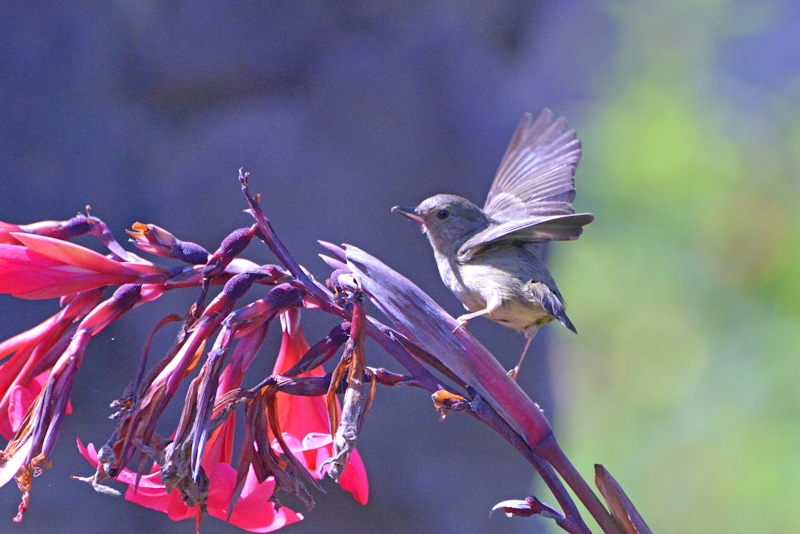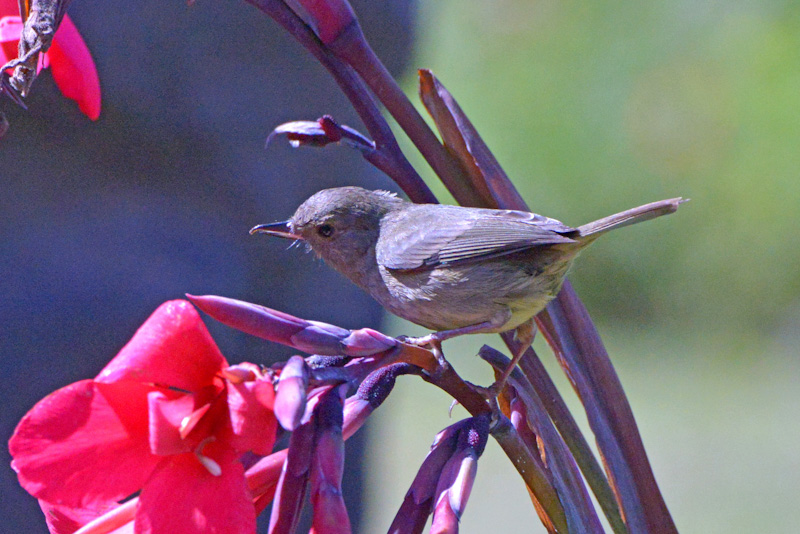

Photo and Commentary ©2024 by Robert Howson
Tuesday, December 17, 2024
The 1800s was a period when most natural history writing carried a moralistic tone. So it’s not surprising that when Ellen White wrote about nature she naturally fell into that same pattern. And for that matter, most of us that write blogs for this church do so as well, tacitly agreeing with Martin Luther that nature is God’s Second Book. The Slaty Flowerpiercer is a species that generally would not receive good press in that setting. This common species is endemic to the Talamancan montane forests of Costa Rica and Panama. It sports a unique upturned bill with a hook on the upper mandible which it uses it to puncture the base of the corolla of flowers. Then, with its brush-tipped tongue, it extracts the nectar, frequently without pollinating the flower.
Although I don’t read a word of Norwegian, it’s not difficult to determine the meaning of its name in that language: Blyblomsterborer. The moralists add another title as well, nectar robbers, implying damaging the flowers without pollinating them is nectar theft. Following this same logic, the hummingbirds with their long bills which enable them to reach deeply into nectar-filled flowers, are somehow more moral than these interlopers.
Beautiful our gardens may be, even if they are not comparable to Eden. Perhaps we might be wise to enjoy their beauty and uniqueness without feeling obliged to sermonize about them. Good advice was offered by Abraham Lincoln, at least the saying has been attributed to him: “We can complain because rose bushes have thorns, or rejoice because thorn bushes have roses.” And I’d like to add, flowerpiercers.
